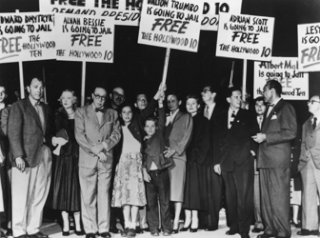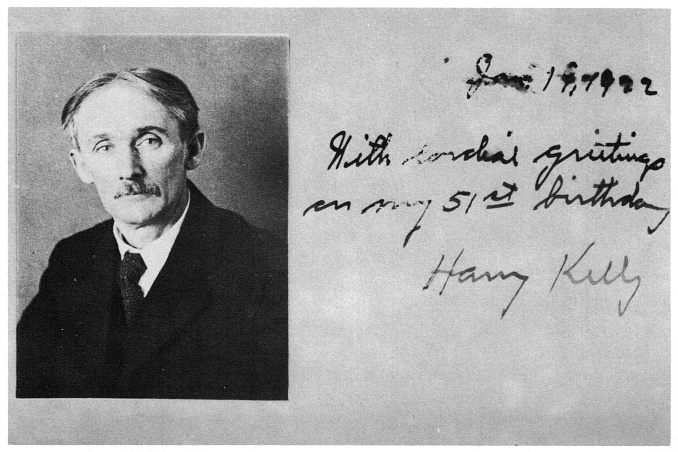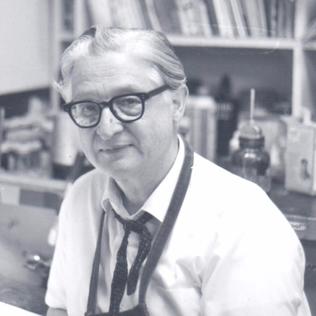Related Research Articles
Anarchism is a political philosophy and movement that is sceptical of authority and rejects all involuntary, coercive forms of hierarchy. Anarchism calls for the abolition of the state, which it holds to be undesirable, unnecessary, and harmful. It is usually described alongside libertarian Marxism as the libertarian wing of the socialist movement and as having a historical association with anti-capitalism and socialism.

Pyotr Alexeyevich Kropotkin was a Russian anarchist, socialist, revolutionary, economist, sociologist, historian, zoologist, political scientist, human geographer and philosopher who advocated anarcho-communism. He was also an activist, essayist, researcher and writer.

The Monthly Review, established in 1949, is an independent socialist magazine published monthly in New York City. The publication is the longest continuously published socialist magazine in the United States.

Alexander Berkman was a Russian-American anarchist and author. He was a leading member of the anarchist movement in the early 20th century, famous for both his political activism and his writing.

This is a bibliography for Ayn Rand and Objectivism. Objectivism is a philosophical system initially developed in the 20th century by Rand.

The 1919 United States anarchist bombings were a series of bombings and attempted bombings carried out by followers of the Italian anarchist Luigi Galleani from April through June 1919.
The Manifesto of the Sixteen, or Proclamation of the Sixteen, was a document drafted in 1916 by eminent anarchists Peter Kropotkin and Jean Grave which advocated an Allied victory over Germany and the Central Powers during the First World War. At the outbreak of the war, Kropotkin and other anarchist supporters of the Allied cause advocated their position in the pages of the Freedom newspaper, provoking sharply critical responses. As the war continued, anarchists across Europe campaigned in anti-war movements and wrote denunciations of the war in pamphlets and statements, including one February 1916 statement signed by prominent anarchists such as Emma Goldman and Rudolf Rocker.

The Hollywood blacklist was the colloquial term for what was in actuality a broader entertainment industry blacklist put in effect in the mid-20th century in the United States during the early years of the Cold War. The blacklist involved the practice of denying employment to entertainment industry professionals believed to be or to have been Communists or sympathizers. Not just actors, but screenwriters, directors, musicians, and other American entertainment professionals were barred from work by the studios. This was usually done on the basis of their membership in, alleged membership in, or even just sympathy with the Communist Party USA, or on the basis of their refusal to assist Congressional investigations into the party's activities. Even during the period of its strictest enforcement, from the late 1940s through to the late 1950s, the blacklist was rarely made explicit or easily verifiable, as it was the result of numerous individual decisions by the studios and was not the result of official legal action. Nevertheless, it quickly and directly damaged or ended the careers and income of scores of individuals working in the film industry.

Harry May Kelly (1871–1953) was an American anarchist and lifelong activist in the Modern School movement.

Die Anarchisten: Kulturgemälde aus dem Ende des XIX Jahrhunderts is a book by anarchist writer John Henry Mackay published in German and English in 1891. It is the best known and most widely read of Mackay's works, and made him famous overnight. Mackay made it clear in the book's subtitle that it was not intended as a novel, and complained when it was criticised as such, declaring it instead propaganda. A Yiddish translation by Abraham Frumkin was published in London in 1908 by the Arbeter Fraynd collective, with an introduction by the journal's editor, prominent London anarchist Rudolf Rocker. It was also translated into Czech, Dutch, French, Italian, Russian, Spanish, and Swedish. Die Anarchisten had sold 6,500 copies in Germany by 1903, 8,000 by 1911, and over 15,000 by the time of the author's death in 1933.

Fred Wright was an American labor cartoonist and activist who created "thousands" of illustrated news strips as a staff cartoonist for the United Electrical, Radio and Machine Workers of America (UE). His first published cartoon appeared in The Pilot, a publication owned by the National Maritime Union, in 1939. In 1949, the UE hired Wright as a staff cartoonist, for whom he worked until his death on December 29, 1984.
The World Tomorrow: A Journal Looking Toward a Christian World (1918–1934) was an American political magazine, founded by the American office of the pacifist organization Fellowship of Reconciliation (FORUSA). It was published under the organization's The Fellowship Press, Inc., located at 108 Lexington Avenue in New York City. Prior to June 1918, the periodical was titled The New World. It was a leading voice of Christian socialism in the United States, with an "independent, militant" editorial line.
Mari Jo Buhle is an American historian and William J. Kenan Jr. University Professor Emerita at Brown University.

Freie Arbeiter Stimme was a Yiddish-language anarchist newspaper published from New York City's Lower East Side between 1890 and 1977. It was among the world's longest running anarchist journals, and the primary organ of the Jewish anarchist movement in the United States; at the time that it ceased publication it was the world's oldest Yiddish newspaper. Historian of anarchism Paul Avrich described the paper as playing a vital role in Jewish–American labor history and upholding a high literary standard, having published the most lauded writers and poets in Yiddish radicalism. The paper's editors were major figures in the Jewish–American anarchist movement: David Edelstadt, Saul Yanovsky, Joseph Cohen, Hillel Solotaroff, Roman Lewis, and Moshe Katz.
Elizabeth and Alexis Ferm were early 20th century libertarian educators best known for their work at the Ferrer Colony's Modern School.
Roman Lewis (1864–1918) was a prominent Jewish anarchist in New York. Fluent in Russian and Yiddish, he was the first editor of the Yiddish-language anarchist newspaper Fraye Arbeter Shtime. For a time, Lewis was the Pioneers of Liberty's best speaker. Lewis attended gymnasium in Russia. In New York, when he wasn't working at making shirts, he spent his leisure time with the anarchist movement and spoke at Jewish union rallies. He later became a Social-Democrat, attended law school in Chicago, where he remained. He was elected an assistant district attorney in Chicago as a Democrat. Lewis committed suicide in Cincinnati in 1918.
Anarchism and libertarianism, as broad political ideologies with manifold historical and contemporary meanings, have contested definitions. Their adherents have a pluralistic and overlapping tradition that makes precise definition of the political ideology difficult or impossible, compounded by a lack of common features, differing priorities of subgroups, lack of academic acceptance, and contentious, historical usage.
Abraham "Abe" Bluestein (1909–1997) was an American anarchist who participated in the Spanish Civil War.
The Chicago idea is an ideology combining anarchism and revolutionary unionism. It was a precursor to anarcho-syndicalism professed by Chicago anarchists, especially Albert Parsons and August Spies, in the mid-1880s.
References
- ↑ Commons 1918, p. 295.
- ↑ Gay & Gay 1999, p. 168.
- ↑ Commons 1918, p. 296.